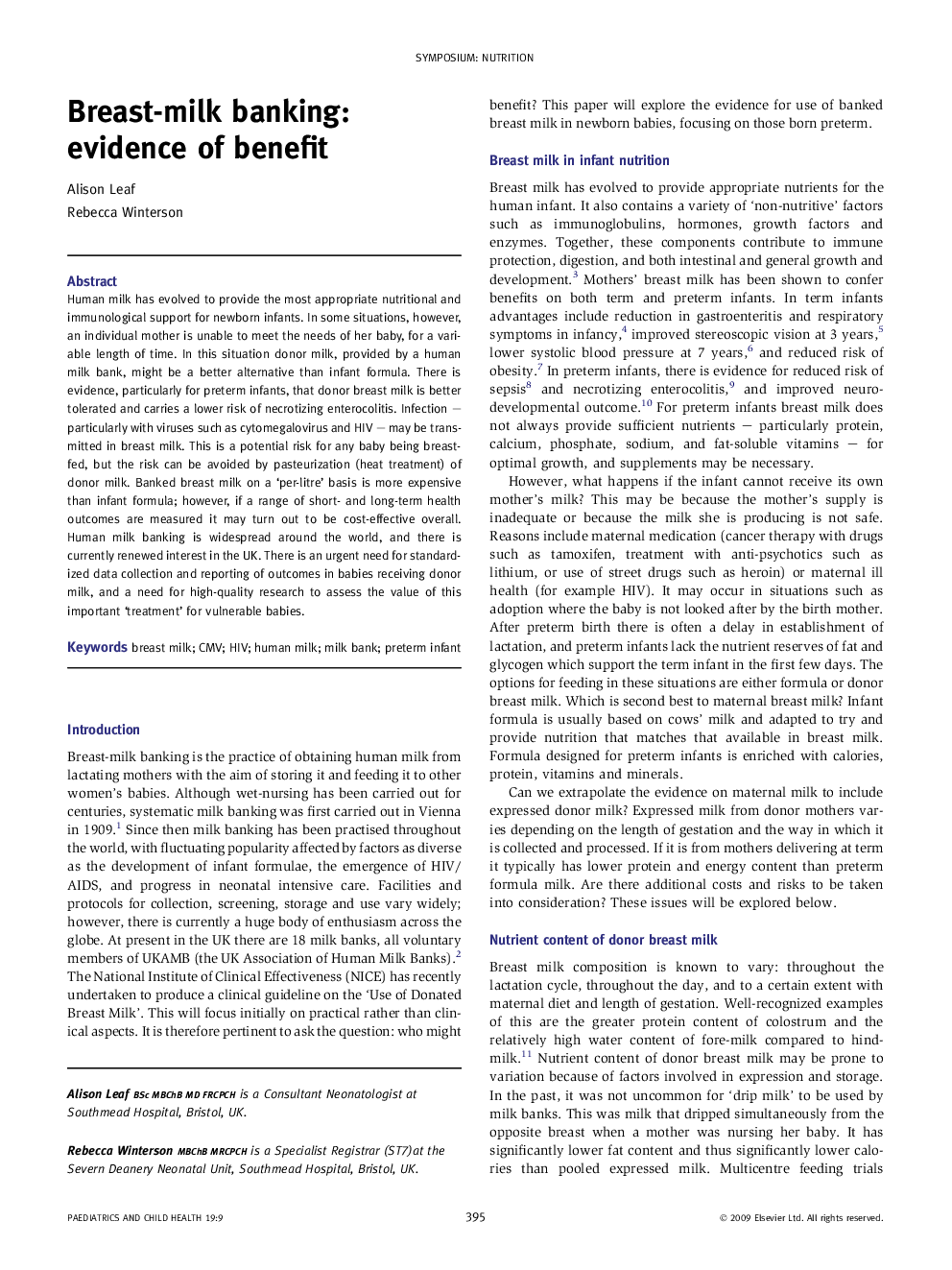| Article ID | Journal | Published Year | Pages | File Type |
|---|---|---|---|---|
| 4172823 | Paediatrics and Child Health | 2009 | 5 Pages |
Human milk has evolved to provide the most appropriate nutritional and immunological support for newborn infants. In some situations, however, an individual mother is unable to meet the needs of her baby, for a variable length of time. In this situation donor milk, provided by a human milk bank, might be a better alternative than infant formula. There is evidence, particularly for preterm infants, that donor breast milk is better tolerated and carries a lower risk of necrotizing enterocolitis. Infection – particularly with viruses such as cytomegalovirus and HIV – may be transmitted in breast milk. This is a potential risk for any baby being breast-fed, but the risk can be avoided by pasteurization (heat treatment) of donor milk. Banked breast milk on a ‘per-litre’ basis is more expensive than infant formula; however, if a range of short- and long-term health outcomes are measured it may turn out to be cost-effective overall. Human milk banking is widespread around the world, and there is currently renewed interest in the UK. There is an urgent need for standardized data collection and reporting of outcomes in babies receiving donor milk, and a need for high-quality research to assess the value of this important ‘treatment’ for vulnerable babies.
